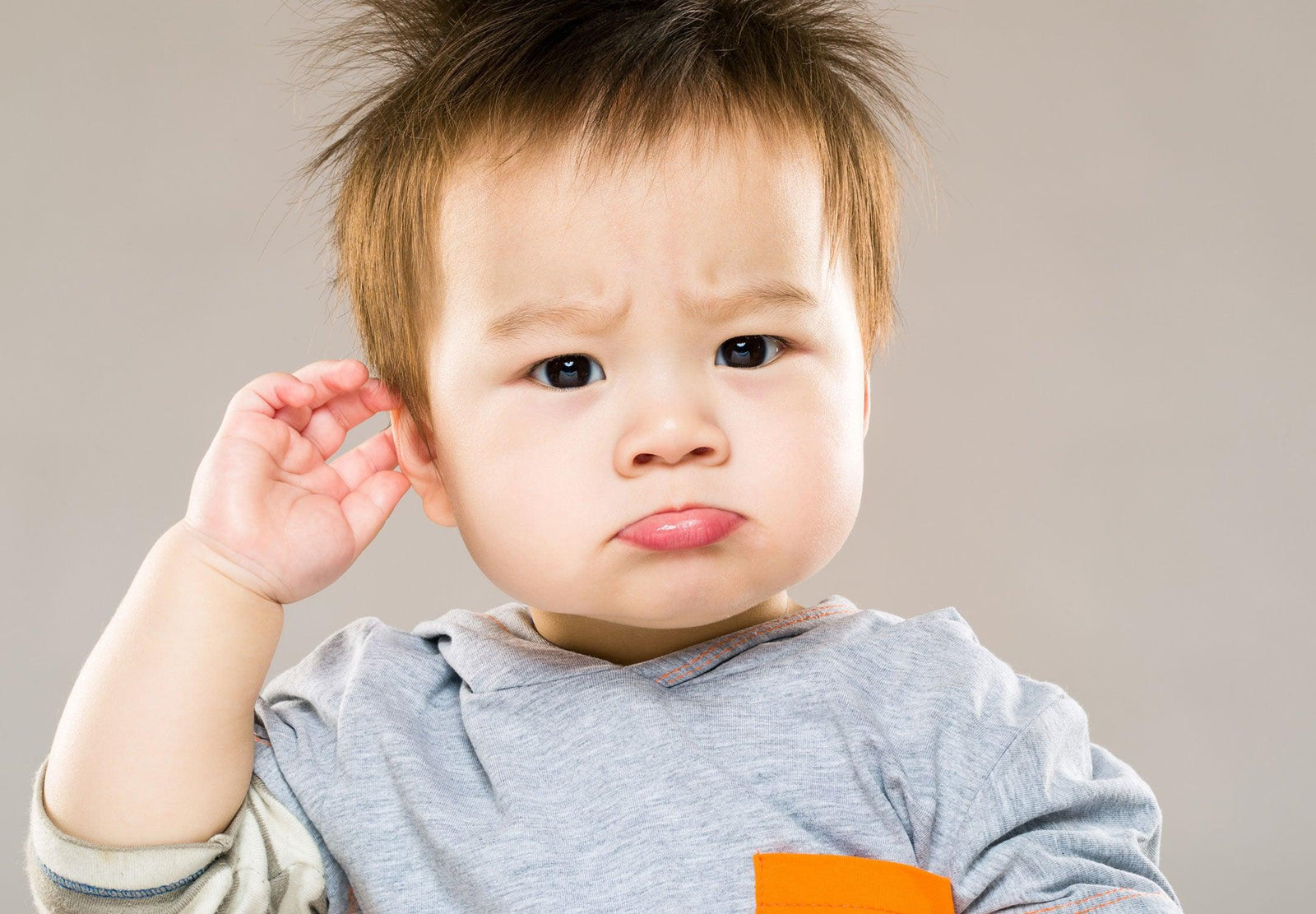Your Cart is Empty

January 16, 2023
As a mom, it’s my worst nightmare when my baby isn’t feeling well. It’s hard to tell what’s wrong when they can’t tell you in words. One of the most common illnesses for babies is an ear infection. Because young children can't verbalize how they're feeling, it's important to know the signs of an ear infection so that you can get your little one the help they need.

Fever
A fever is one of the most common signs of an ear infection in babies and toddlers. Generally speaking, if your baby has a fever with no other symptoms present, it may be a sign of an ear infection. Be sure to check his or her temperature regularly if you suspect something might be wrong. A fever over 100 degrees Fahrenheit should prompt a visit to the pediatrician right away.
Pulling on the Ear(s)
Another sign that your baby may have an ear infection is if they are constantly pulling on one or both ears. If this behavior continues for more than two days, it could be a warning sign that there's something amiss inside their ears. It's always best to err on the side of caution and get your little one checked out by their doctor as soon as possible if baby seems unwell and is pulling on their ears consistently.
Trouble Sleeping
Ear infections can make it difficult for babies and toddlers to sleep because of all the pain and discomfort they are feeling inside their ears, and the inability to communicate with you. If your child is having trouble sleeping due to irritability or crying more often than usual, especially if fever accompanies the sleeplessness; it could be a sign that they are dealing with an ear infection.
Fussiness/Crying
If your baby has been especially fussy or cranky lately, it could be a warning sign that something isn't quite right inside his or her ears—especially if there aren't any other obvious explanations such as teething pain or hunger pangs from not getting enough food during meals. Take note if your baby starts getting extra fussy/crying more often than usual; this could also indicate that he or she may have an ear infection.
Diarrhea
Diarrhea might sound like an odd symptom for an ear-related illness, but some studies have linked diarrhea with inner-ear infections in young children! So, if you notice any changes in your baby’s bowel movements along with any other signs mentioned above, then make sure to talk to their pediatrician about getting them checked out right away just in case there is indeed something more serious going on!
When to Seek Help?
If your baby is exhibiting any of these symptoms, it is important to seek medical attention as soon as possible. A doctor will be able to diagnose an ear infection and recommend treatment options.
The treatment for an ear infection in infants usually involves antibiotics prescribed by a doctor. If the infection is severe, your doctor may also suggest using pain medication such as acetaminophen or ibuprofen. It's also important to make sure that your baby is getting plenty of rest and fluids during this time.
Additionally, you may want to consider applying a warm cloth compress on your baby's ears several times a day as this can help reduce some of their discomfort, always check the temperature of the compress, babies’ skin is a lot more sensitive than ours and we want to make sure we don’t burn them. Lastly, if your baby is having trouble sleeping due to their earache, try elevating the head of their crib by placing a pillow underneath a fitted sheet, which can help ease some of the pressure in their ears when they lay down. Always best to ensure pillows are freely moving around for safety reasons.
Conclusion:
An ear infection can be very uncomfortable for young children since they cannot easily express how much pain they are experiencing without being able to speak properly yet and taking care of an infant with an ear infection can be a daunting and stressful task for a new parent, but with the right information and support system, it doesn't have to be intimidating!
Knowing what signs and symptoms look out for will help you catch any potential issues before they become more serious problems down the line. Additionally, understanding how best to treat those infections once detected will ensure that your little one receives the proper care, they need so they can feel better sooner rather than later. Remember that your pediatrician is always available if you ever have any questions or concerns about treating an infant's ear infection so don't hesitate to reach out for further advice if needed!
Hopefully these tips will help new parents identify potential issues quickly so that their babies can start feeling better soon. Good luck!